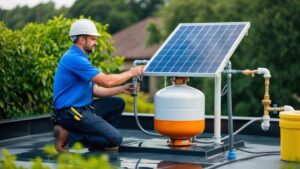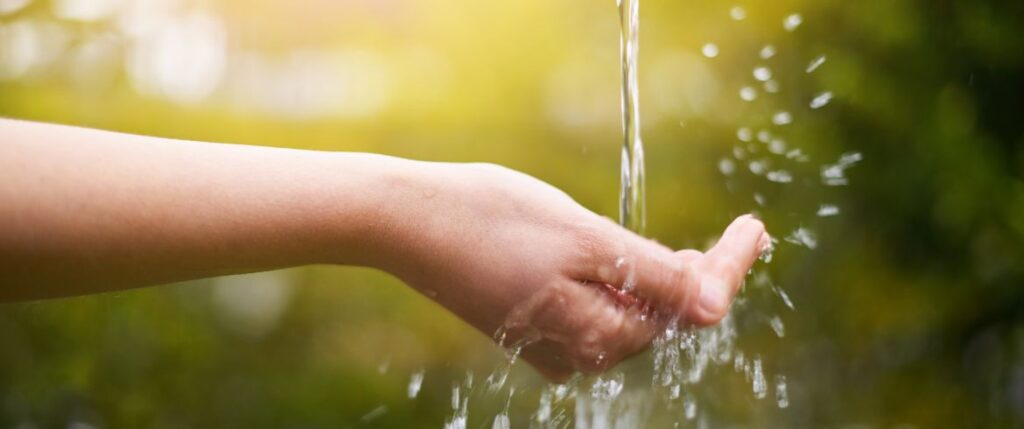As concerns about climate change and environmental sustainability continue to grow, many industries are embracing eco-friendly solutions to minimize their environmental impact. Plumbing is no exception, and eco-friendly plumbing solutions are becoming increasingly popular in homes and businesses worldwide. These solutions not only help conserve resources but also contribute to the overall well-being of the planet. By incorporating water-saving technologies, energy-efficient systems, and environmentally friendly materials, eco-friendly plumbing is playing a pivotal role in reducing pollution and promoting sustainable living.
Water Conservation Through Eco-Friendly Plumbing
 One of the most significant benefits of eco-friendly plumbing solutions is water conservation. With the global water supply under increasing pressure due to population growth, climate change, and pollution, it is essential to reduce water waste wherever possible. Traditional plumbing systems often rely on outdated fixtures that use more water than necessary. Eco-friendly plumbing solutions, however, use innovative technologies designed to reduce water consumption without sacrificing performance.
One of the most significant benefits of eco-friendly plumbing solutions is water conservation. With the global water supply under increasing pressure due to population growth, climate change, and pollution, it is essential to reduce water waste wherever possible. Traditional plumbing systems often rely on outdated fixtures that use more water than necessary. Eco-friendly plumbing solutions, however, use innovative technologies designed to reduce water consumption without sacrificing performance.
Low-flow faucets, showerheads, and toilets are prime examples of eco-friendly plumbing fixtures. These fixtures use advanced technology to limit water flow, yet they maintain a high level of functionality. For instance, low-flow showerheads provide a comfortable shower experience while reducing water use by up to 50%. Low-flow toilets can use as little as 1.28 gallons per flush, compared to older models that consume up to 3.5 gallons per flush. Installing these water-saving fixtures in homes and commercial buildings can significantly reduce water consumption and lower utility bills.
Rainwater harvesting systems also play a crucial role in eco-friendly plumbing. These systems collect rainwater from roofs and store it for later use, reducing the need for potable water from municipal sources. This water can be used for irrigation, landscape watering, and even flushing toilets, further reducing water usage.
Energy Efficiency in Plumbing Systems
Another critical aspect of eco-friendly plumbing is energy efficiency. Plumbing systems are often responsible for a significant portion of a building’s energy consumption, particularly when it comes to heating water. Traditional water heaters can consume large amounts of energy, especially if they are older or inefficient models. By switching to energy-efficient water heating systems, such as tankless water heaters or solar water heaters, homeowners and businesses can significantly reduce their carbon footprint.
Tankless water heaters, also known as on-demand water heaters, only heat water as it is needed, eliminating the need to constantly keep a large tank of water hot. This means that energy is only used when hot water is required, leading to significant energy savings over time. Solar water heaters, on the other hand, use renewable energy from the sun to heat water, providing an environmentally friendly alternative to traditional energy sources.
In addition to water heating, plumbing systems can also benefit from energy-efficient insulation. Insulating pipes, especially those that carry hot water, helps maintain the temperature of the water as it travels through the system, reducing the energy required to keep the water at the desired temperature. Proper insulation can help reduce heat loss, leading to lower energy consumption and a more efficient plumbing system.
Reducing Waste and Pollution
Eco-friendly plumbing solutions also focus on reducing waste and minimizing pollution. Traditional plumbing systems can contribute to pollution in several ways, from the chemicals used in plumbing materials to the wastewater that flows into the environment. Eco-friendly plumbing solutions aim to address these issues by using sustainable materials and ensuring that wastewater is treated and disposed of in a responsible manner.
One of the key components of eco-friendly plumbing is the use of environmentally friendly materials. Traditional plumbing systems often use materials such as PVC, which can release harmful chemicals into the environment when disposed of. In contrast, eco-friendly plumbing solutions use materials like copper, brass, and PEX (cross-linked polyethylene), which are more sustainable and have a lower environmental impact. These materials are also more durable, reducing the need for frequent replacements and minimizing waste.
Moreover, wastewater treatment is another critical aspect of reducing pollution. Eco-friendly plumbing systems often incorporate graywater recycling systems, which collect and treat wastewater from sinks, showers, and washing machines. This treated water can then be used for non-potable purposes, such as irrigation or toilet flushing. By reusing water in this way, eco-friendly plumbing systems help reduce the amount of wastewater that is discharged into the environment, thereby decreasing pollution and conserving freshwater resources.
Financial Savings and Long-Term Benefits

While eco-friendly plumbing solutions often require a higher initial investment, they can lead to significant financial savings over time. Water-saving fixtures and energy-efficient systems lower utility bills, reducing the overall cost of running a household or business. Additionally, the long lifespan of eco-friendly plumbing materials, such as PEX piping or copper, reduces the need for frequent repairs or replacements, further saving money in the long run.
Moreover, eco-friendly plumbing systems can increase the value of a property. Many homebuyers and business owners are now prioritizing sustainability when making purchasing decisions. A home or building that is equipped with energy-efficient plumbing solutions is likely to attract more interest and may sell for a higher price. For businesses, adopting eco-friendly plumbing solutions can improve brand image and attract environmentally conscious customers.
Healthier Living Environments
In addition to environmental and financial benefits, eco-friendly plumbing solutions contribute to healthier living environments. Traditional plumbing systems can sometimes leach harmful chemicals, such as lead or chlorine, into drinking water, potentially posing health risks. Eco-friendly plumbing materials, however, are often free from harmful chemicals, ensuring that the water that flows through the system is safe for consumption.
Incorporating eco-friendly plumbing also helps improve indoor air quality. For example, using non-toxic materials and avoiding the use of harsh chemicals in plumbing systems reduces the amount of indoor pollutants that can affect air quality. This is particularly important in homes and businesses where individuals spend a significant amount of time indoors.